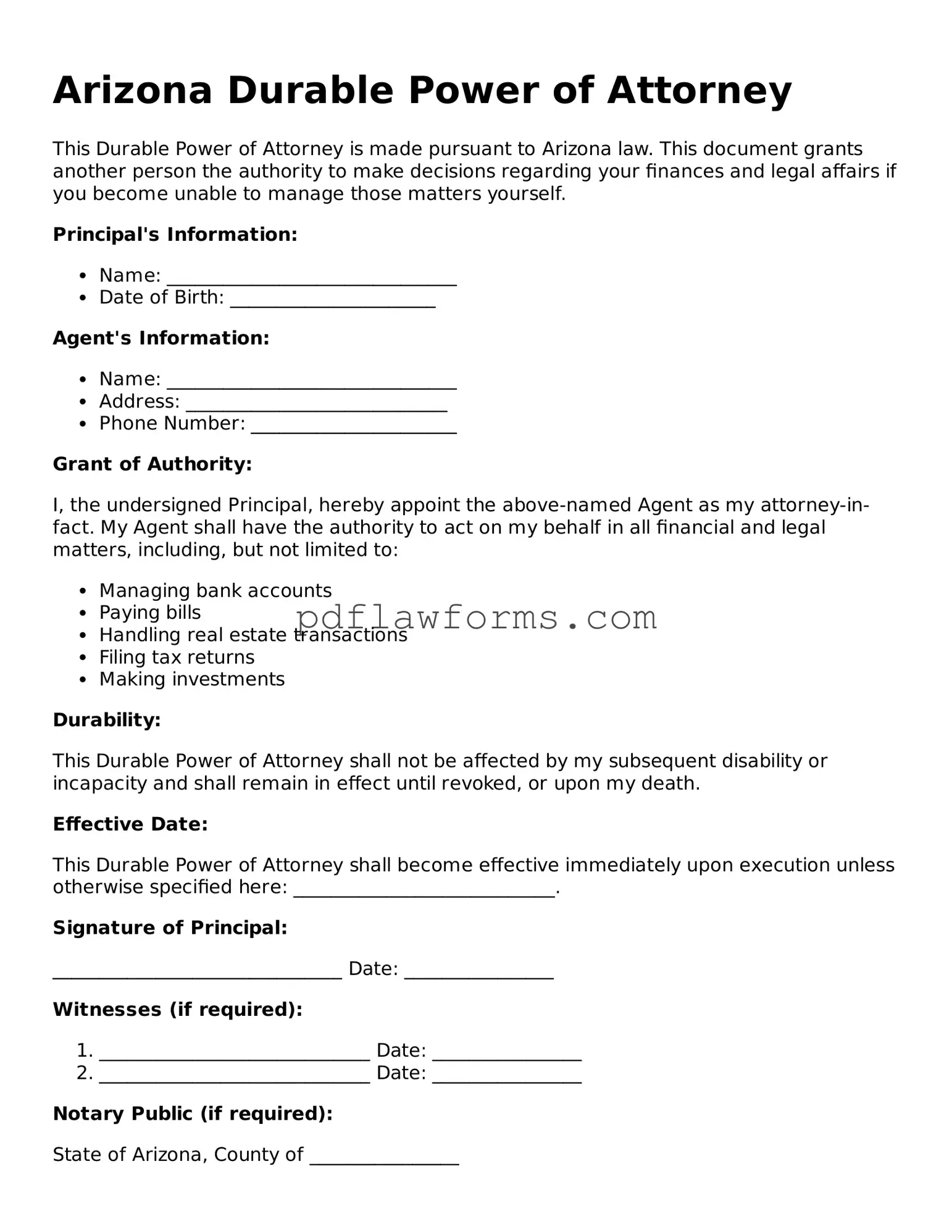Filling out a Durable Power of Attorney (DPOA) form in Arizona is an important task that allows individuals to appoint someone to make decisions on their behalf when they are unable to do so. However, there are common mistakes that people often make during this process, which can lead to complications in the future. Understanding these errors can help ensure that the document serves its intended purpose effectively.
One frequent mistake is failing to specify the powers granted to the agent. The DPOA form allows individuals to choose from a range of powers, such as managing finances or making healthcare decisions. When these powers are not clearly defined, it can create confusion and lead to disputes among family members or between the agent and the principal. It is crucial to be explicit about what the agent can and cannot do.
Another common error is not signing the document in the presence of a notary or witnesses. Arizona law requires that the DPOA be notarized or signed by at least two witnesses. Without proper signatures, the form may not be considered valid, which can render it useless when it is needed most. Ensuring that all necessary parties are present during the signing process is essential for the document's legitimacy.
Some individuals neglect to update their DPOA when significant life changes occur, such as marriage, divorce, or the death of the appointed agent. It is important to review and revise the document periodically to reflect current circumstances. Failing to do so can lead to situations where the wrong person is making decisions, potentially causing distress for both the principal and their loved ones.
Additionally, people often overlook the importance of discussing their wishes with the chosen agent. It is vital for the agent to understand the principal's preferences regarding medical treatment, financial management, and other personal matters. Without this communication, the agent may make decisions that do not align with the principal's values or desires, leading to unintended consequences.
Lastly, individuals sometimes choose an agent based on convenience rather than suitability. While it may be tempting to appoint a family member or close friend, it is essential to consider whether that person possesses the necessary skills, judgment, and willingness to act in the principal's best interests. Selecting an agent who is trustworthy and capable can make a significant difference in how effectively the DPOA functions.

